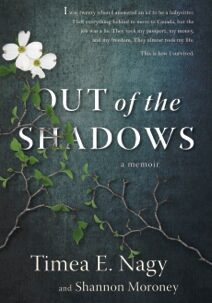In 701 B.C. the Assyrian empire was in its ascendancy. It had already vanquished the kingdom of Israel to the north including the capital at Samaria. It then prepared an assault on Judah and its capital at Jerusalem.
But in one of those significant events that changes the course of world history, Assyria was repelled. Jerusalem was saved until 586 B.C. when the Babylonians sacked the city, forcing its leadership class into exile.
Henry Aubin, in a major feat of scholarship, determines that Jerusalem was aided by a Kushite army from Africa which had marched northeast from the Nile valley. While the Bible attributes the Assyrian retreat to an angel and secular commentators cite pestilence, Aubin, in a meticulously documented work, demonstrates that an alliance with the African nation of Kush bolstered Jerusalem’s defences.
Kush, also known as Nubia, was located in what is now southern Egypt and northern Sudan. A monarchy that existed for more than 1000 years, from 900 B.C. to A.D. 350, Kushites held sway over Egypt from 712 B.C. to about 660 B.C. Of Egypt’s 31 dynasties, this, the 25th Dynasty, is the only one that all scholars agree, was black.
The commander of the Kushite expeditionary force was Taharqa (or as the Bible calls him Tirhakah). This Kushite prince, who had his own interests in halting Assyrian expansion, likely caught the aggressors by surprise as they prepared their siege of Jerusalem.
Aubin offers a thrilling military history and a stirring political analysis of the ancient world. He also sees the event as influential over the centuries.
The Kushite rescue of the Hebrew kingdom of Judah enabled the fragile, war-ravaged state to endure, to nurse itself back to economic and demographic health, and allowed the Hebrew religion, Yahwism, to evolve within the next several centuries into Judaism. Thus emerged the monotheistic trunk supporting Christianity and Islam.

Timea E. Nagy & Shannon Moroney
Out of the Shadows
“I was twenty when I answered an ad in Budapest to be a babysitter in Canada, but the job was a lie. They took my passport, my money and my freedom. They almost took my life.â€
Timea had been lured by a ring of international human traffickers. On arrival in Toronto, she was forced into sex labour in some of the city’s seediest nightclubs and kept by her “agents†for months until she made her dangerous escape.
Allowed to stay in Canada to testify against her traffickers, Timea struggled to overcome her trauma until she found purpose: working with police to break up the biggest human trafficking ring in Canada, and dedicating her life to rescuing survivors. She opened Canada’s first safe house for enslaved sex workers, healing others as she healed herself.
She trained the FBI, and designed a ground-breaking training program for major banks to deal with financial crimes in the $6 billion a year illegal sex work industry.
Out of the Shadows is a gripping, fast-paced journey into the underworld of human trafficking told by a brave and determined survivor.
Once a voiceless victim, Timea overcame the odds to become one of the most recognized advocates against human trafficking.
This is her story.
Co-writer Shannon Moroney is the author of Through the Glass (Doubleday Canada, 2011, Simon & Schuster USA, UK, Australia 2012), a bestselling memoir chronicling her journey through the justice system following the violent crimes of her husband in 2005. She is a recognized advocate of restorative justice and a sought-after public speaker who addresses audiences all over the world. Shannon lives in Toronto.
Timea E. Nagy is the recipient of The Meritorious Service Decoration From the Governor General of Canada (2017), the Prime Minister’s Volunteer Award (2012), the Queen Elizabeth Diamond, Jubilee Medal (2012), and the Frederick Douglas Award from Free the Slaves International (2012) et al.
In September 2018, Timea received a two-year appointment to the United Nations Financial Sector Commission on Modern Slavery and Human Trafficking.
“Timea Nagy’s harrowing story deeply reports the ugliness of human trafficking. But it’s ultimately a remarkable tale of survival and resilience, with lessons for a country that considers itself to be a safe place for immigrants.â€
Pauline Dakin, bestselling author of Run, Hide, Repeat
Doubleday Canada 2019